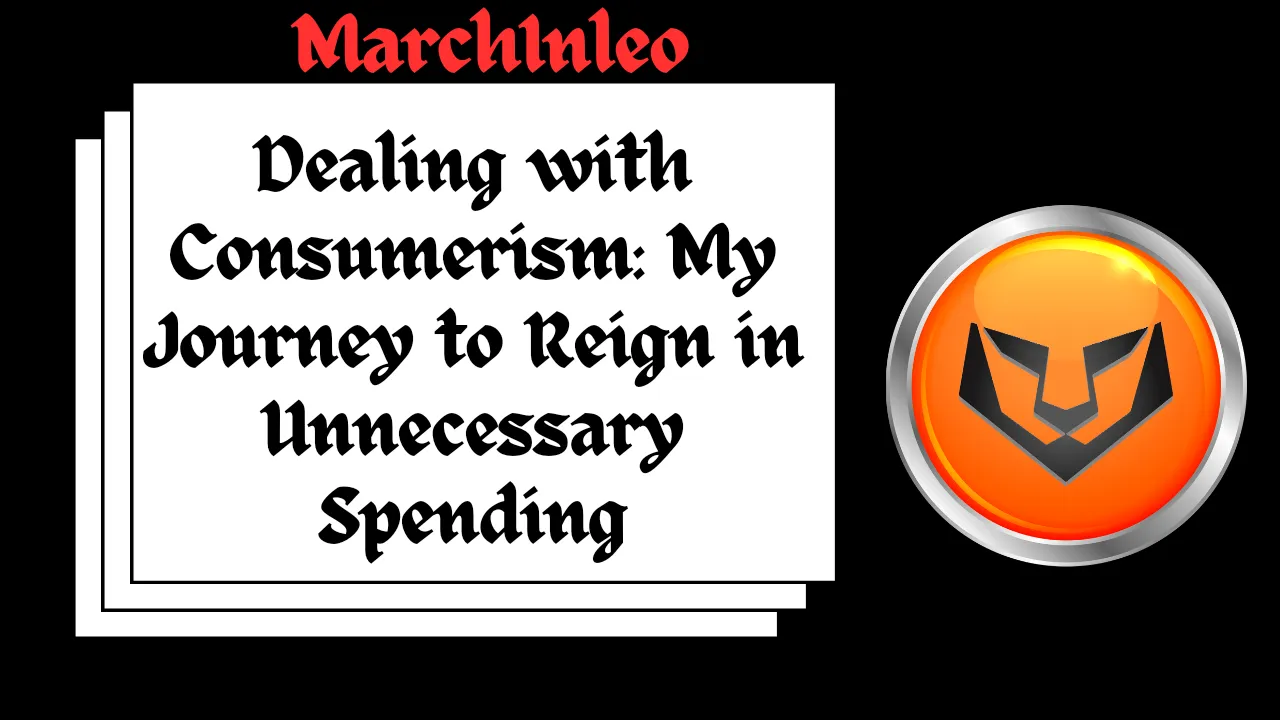
For many years, I struggled with wasteful spending and the endless pursuit of possessions that don't really add value to my life. I felt consumed with societal and commercial pressure to remain relevant among friends by owning the most recent trends in fashion and acquiring the latest gadgets. However, this manner of living was negatively impacting my economic security and savings. This article discusses how I learned to control consumerism and concentrate on what truly matters by tracking my expenses, distinguishing wants from needs, and developing self-control over my spending habits.
Realizing where my money was going
Through diligently tracking each penny I spent over the course of four weeks, I was shocked to discover how much money was seeping out of my bank account on frivolous purchases. Small daily expenses like snacks, coffee, beverages and eating meals outside quickly added up.
Unplanned buying of clothes and electronic devices I truly did not need, were also depleting my finances. Seeing the hard figures was an eye opener and inspired me to modify my lavish habits. While tracking my expenditures, I began to more fully recognize spending tendencies I previously took for granted. This new awareness has helped me implement strategies to better prioritize needs over wants and focus on long-term savings goals.
Identifying needs vs wants
When I obtained detailed information on where my money was going each month, I took the opportunity to carefully consider which expenses were essential needs as opposed to wants. Needs such as shelter, utilities, food and transportation were necessities to sustain my basic living requirements. However, wants including eating out at restaurants, leisure activities and purchasing new clothes or goods provided temporary satisfaction but did little to meaningfully progress my life goals in the long run.
Upon examination, I realized a large number of my expenditures fell under the want category and presented me with the opportunity for a change. This exercise of separating needs from wants helped me recognize specific areas within my budget where I could scale back spending and better focus my resources.
Developing self-control
In order to gain control over my expenditures, I understood that establishing a rigid spending plan and possessing the willpower to refuse unplanned purchases were necessities. I took a seat and allocated my income towards fixed expenses and savings targets, with a modest amount allocated to variable wants. Learning to delay gratification and adhere to my budget was initially difficult as I struggled with cravings. However, with the passage of time, it becomes less complicated to bypass needless spending for the sake of financial stability.
A renewed mindset
This change in perspective and gain of self-control has been life changing. I no longer feel the need to always buy things, and am much happier focusing my attention on experiences rather than material goods. Rather than dwindling away, my savings are increasing. Most valuable of all, I feel empowered over my financial circumstances instead of being at their mercy. It is liberating to not be enslaved by promotional gimmicks or pressures to remain relevant among friends in terms of trending fads. Through developing prudent habits and focusing inward, I have gained independence over circumstances that once dominated my thoughts.
Conclusion
The bottom line to my experiences is that getting to be able to control my spending came down to self-awareness, discipline, and a shift in priorities. By taking the time to track where every penny was going, I was able to know which expenses to cut and which to keep. Moreover, developing a budget and having the willpower to stick to it was also a factor for change..
Now I experience the pride and peace of mind that comes from financial stability instead of constant anxiety. While consumerism will always exist, I've learned that true happiness doesn't depend on owning the latest things, but on living intentionally and focusing on what really matters, whether that's experiences with loved ones or achieving long term savings goals.
If you are dealing with too much spending, try making a budget. It's a good step forward. You can keep track of your money and see where it all goes. Put your needs and wants on a scale and choose wisely. Don't let shopping weigh you down. A budget help you stay in control of your finance.
This is my entry for today's #marchinleo prompts "Consumerism: Expensive hobbies, and Extravagances."
Stuck with writing block? Try the Marchinleo daily prompts. They may help on those idea-empty days. Check on @leo.tasks to know more about the writing challenge.